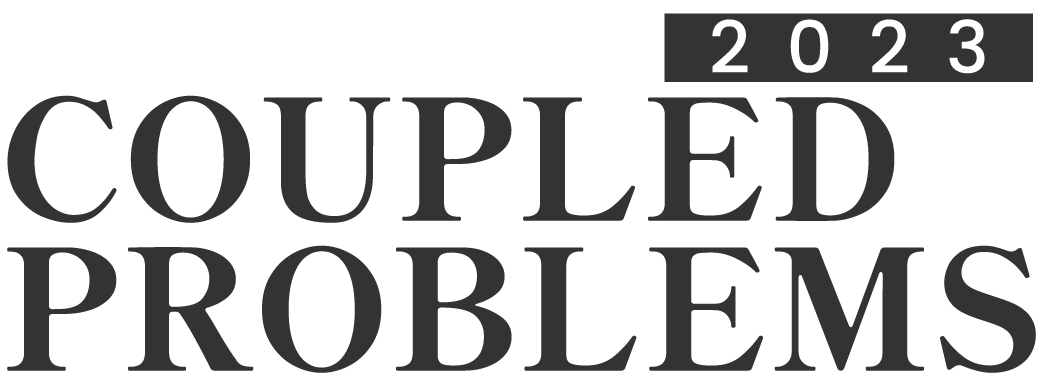

Alternating Schwarz-based coupling of conventional and data-driven models
Please login to view abstract download link
Projection-based model order reduction is a promising data-driven strategy for reducing the computational complexity of numerical simulations by restricting the search of the solution to a low-dimensional space spanned by a reduced basis constructed from a limited number of high-fidelity simulations and/or physical experiments/observations. While recent years have seen extensive investments in the development of projection-based reduced order models (ROMs) and other data-driven models, these models are known suffer from a lack of robustness, stability and accuracy, especially in the predictive regime. Moreover, a unified and rigorous theory for integrating these models in a “plug-and-play” fashion into existing multi-scale and multi-physics coupling frameworks is lacking at the present time. This talk presents a promising mitigation to the aforementioned shortcomings in which we decompose the physical domain on which a difficult problem is posed into a set of overlapping or non-overlapping subdomains, define spatially-local ROMs in one or more of these subdomains, and couple these ROMs together with each other and/or with FOMs in neighboring subdomains. Leveraging recent work that adapted the Schwarz alternating method to enable consistent and concurrent multi-scale coupling of finite element FOMs in solid mechanics [1, 2], the present work describes a new extension of Schwarz alternating method that enables one to create domain decomposition-based FOM-ROM and ROM-ROM couplings from nonlinear monolithic problems [3]. We present results which demonstrate that the proposed coupling methodologies are computationally efficient and capable of coupling disparate models without introducing numerical artifacts into the solution. Importantly, our results suggest that FOM-ROM and ROM-ROM couplings of the sort considered have the potential of improving the predictive viability of projection-based ROMs, by enabling the spatial localization of ROMs (via domain decomposition) and the online integration of high-fidelity information into these models (via FOM coupling). REFERENCES [1] A. Mota, I. Tezaur, C. Alleman. "The Schwarz alternating method in solid mechanics", Comput. Meth. Appl. Mech. Engng. 319 19-51, 2017. [2] A. Mota, I. Tezaur, G. Phlipot. "The Schwarz alternating method for dynamic solid mechanics", Int. J. Numer. Meth. Engng. 123 (21) 5036-5071, 2022. [3] J. Barnett, I. Tezaur, A. Mota. "The Schwarz alternating method for the seamless coupling of n

